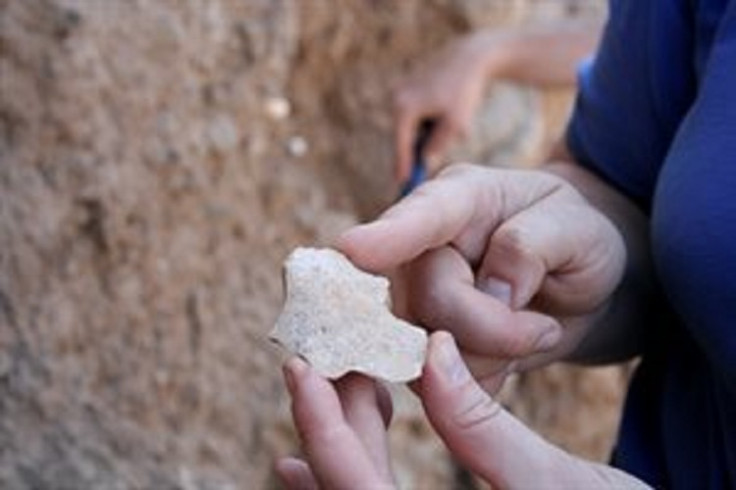Turkey's oldest recorded stone tool discovered dating to 1.2 million years ago

The oldest stone tool ever to be discovered in Turkey has been dated to 1.2 million years, showing early humans passed through Asia to Europe far earlier than previously thought.
In their study, published in the journal Quaternary Science Reviews, researchers discovered the ancient stone tool by chance in ancient deposits in the river Gediz, western Turkey.
Experts from Royal Holloway, University of London, used high-precision radioisotopic dating and paleomagnetic measurements from lava flows to date the deposits from the ancient river meander to provide an accurate timeline of when early hominins lived in the area.
Findings put the quartzite flake at between 1.24 and 1.17 million years ago, showing early humans occupied the area at this time.
Researcher Danielle Schreve said: "The flake was an incredibly exciting find. I had been studying the sediments in the meander bend and my eye was drawn to a pinkish stone on the surface. When I turned it over for a better look, the features of a humanly-struck artefact were immediately apparent.
"By working together with geologists and dating specialists, we have been able to put a secure chronology to this find and shed new light on the behaviour of our most distant ancestors."
Authors say their discovery provides a "major new insight" into how and when humans moved out of Africa and Asia.
Schreve said: "This discovery is critical for establishing the timing and route of early human dispersal into Europe. Our research suggests that the flake is the earliest securely-dated artefact from Turkey ever recorded and was dropped on the floodplain by an early hominin well over a million years ago."
© Copyright IBTimes 2025. All rights reserved.






















